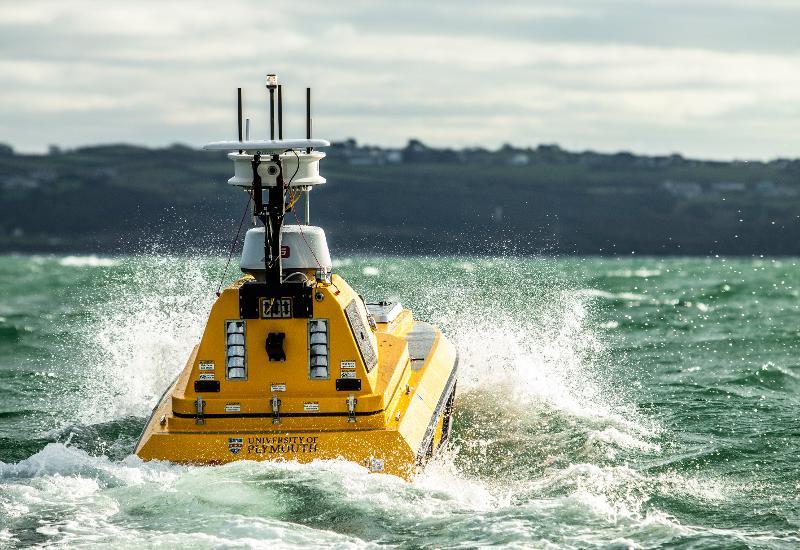Global Leading University Research


University of Exeter - Centre for Future Clean Mobility (CFCM)
The Centre for Future Clean Mobility (CFCM) at the University of Exeter is based in the Department of Engineering. CFCM works at the forefront of the road to zero carbon, and are committed to leading the next generation of clean mobility, reducing and removing fossil fuels from vehicles and vessels on our cities and towns, seas and waterways, our countryside, and our armed forces.
The University of Exeter is a member of the highly regarded Russel Group that is committed to maintaining the very best research and delivering outstanding teaching and learning experience and providing unrivalled links with business and the public sector. Engineering at the University of Exeter combines science, creativity, and critical thinking to solve significant challenges in society. Engineering has always been a driver of innovation and change, and at Exeter there is an established history of working with businesses on both a national and international scale, providing solutions in Nano Engineering Science and Technology, Materials and Manufacturing, Management, Water and the Environment, Renewable Energy, Dynamics, and Control and Civil and Structural Engineering.
CFCM is a world class facility that partners with businesses for design, optimisation, development, and testing of low-carbon and no-carbon powertrains for transport. It has expertise in system integration of powertrains into off-highway, defence, rail, and marine vehicles/vessels; Optimisation of components, sub-systems, and whole vehicles for retrofit; Control systems for complex multi-input power systems; Development of innovation skillsets and structures in SME businesses; and business development for clean powertrains and vehicles/vessels. CFCM can link research and development assets to OEM and supply chain companies expanding into clean powertrain solutions.
CFCM is at the forefront of global research into clean maritime propulsion solutions and will lead and deliver the clean propulsion sector of the forward-looking project to create the Clean Maritime Innovation Centre designed to meet the demand from the expanding market for zero emissions propulsion systems in the maritime sector.
Professor Lisa Roberts, Vice-Chancellor of the University of Exeter said:
"This multi-million pound funding boost is pivotal to ensuring the South-West region is at the forefront of leading meaningful action against the climate emergency and ecological crisis that affects us all.
"This development in Appledore will bring about significantly increased economic activity, create numbers of high value jobs, and generate wider prosperity not just in the region, but for the UK as a whole. It will extend our capabilities across the region and allow us to engage more with major industrial partners and their supply chains.
"I am delighted that the University of Exeter's Centre for Future Clean Mobility will play such an integral role in this ground-breaking partnership to create real solutions to help the maritime sector become truly zero carbon.
"This partnership reaffirms the Centre's commitment to be at the heart of both clean shipbuilding and global Floating Offshore Wind technology innovation, while also underpinning the University's commitment to providing a greener and fairer future for all, while also fuelling economic growth across the region."

The University of Plymouth: working to boost the economy and environment in northern Devon

The proposals for Middle Dock present a new opportunity to harness the University of Plymouth's world-leading marine and maritime expertise at the same time as benefitting the local community. Ranked among the top four universities in the world for the quality of its marine research and teaching, the University is among the UK's leading proponents of clean maritime innovation.
The Clean Maritime Innovation Centre will also further cement the University's position as a UK leader in offshore renewable energy research and innovation- hugely important given the Celtic Sea Floating Offshore Wind opportunities, and providing a route to strengthen local supply chain opportunities in Torridge, northern Devon and across Devon and Plymouth. The University leads the £9million Supergen Offshore Renewable Energy Hub, which brings together a network of academic, industrial and policy stakeholders to champion and maintain the UK's wave, tidal and offshore wind expertise.
Further developing this expertise in Appledore will also build on the University's rich and proud heritage of working in tandem with communities in northern Devon.
For several decades, it has been working alongside Petroc to push forward educational success, and drive up attainment, in further and higher education. Several University-approved qualifications are currently being delivered at Petroc's campuses in subjects including education, computing, science, engineering, and health and care. The proposals will see that relationship strengthened, enabling Petroc to deliver a far wider range of maritime-related courses as well.
The University of Plymouth has also been involved since 2016 in Defra's North Devon Marine Pioneer programme, which is central to the UK Government's 25-Year Environment Plan. That work is now being expanded as part of a £1.37 million project, led by the North Devon UNESCO Biosphere, which aims to promote green growth and investment in the region.
Professor Judith Petts CBE, Vice-Chancellor of the University of Plymouth, said:
"Appledore has a proud place in the history of maritime innovation. This scheme offers the exciting and genuine prospect of us working to ensure that rich heritage can continue. The plans for Middle Dock will create a centre where our expertise continues to be channelled in a way that addresses some of the most pressing global challenges, while at the same time reinvigorating the local community. Working with our long-standing partners at Petroc, we can also ensure it boosts current attainment levels while inspiring and educating future generations."


19 January 2023




